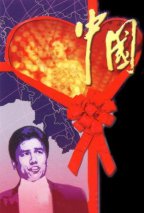 |
 |
Dates:11, 12
& 13 September 2003
Venue: The Centre in Vancouver for Performing Arts.
Reviewer: John Jane
Featured Performers: Ma Mei - soprano; Zhu Qiuling -
mezzo-soprano; Dorji Ciren - tenor; Yang Xiaoyong - baritone; Wei Fugen
- piano
 Impresario
Dennis Law began the evening with his introduction to ‘The
Best Voices of China’ concert series to a surprisingly
small, yet, as it turned out, enthusiastic audience. He was justified
in feeling so proud. To produce a recital of this calibre at such reasonable
ticket prices should be considered a gift to Vancouver concert-goers.
Impresario
Dennis Law began the evening with his introduction to ‘The
Best Voices of China’ concert series to a surprisingly
small, yet, as it turned out, enthusiastic audience. He was justified
in feeling so proud. To produce a recital of this calibre at such reasonable
ticket prices should be considered a gift to Vancouver concert-goers.
Mr. Law also served briefly as Master of Ceremonies during the first half of the concert. Hearing his accurate pronunciation of the performers names was much appreciated by the non-Asian contingent in the audience.
The first performance of the evening was the Rossini aria Cruda sorte! Amor tiranno sung by young mezzo soprano Zhu Qiuling in her first of (sadly) only two solo performances. Her interpretation was expressive and her diction was close to impeccable. Watching Ms Zhu perform was like seeing the Asian equivalent of Cecilia Bartoli, who gave the aria such engaging treatment on the Orpheum stage when she was in Vancouver a few years ago.
Tenor Dorji Ciren was introduced as the only opera singer ever to come out of Tibet. Since western opera is hardly likely to be mainstream fare in the country at the top of the world, one must accept this as being true. Mr. Dorji, (pronounced Door-chi) looking sartorially splendid in a scarlet cummerbund and matching tie, chose the difficult Dein ist mein ganzes herz by 19th century Hungarian composer Franz Lehar as his first song. His voice is certainly pleasant and he tackled the German lyrics with confidence.
Next on stage was soprano Ma Mei with the incredibly popular O mio babbino caro (Oh my beloved Father) from Giacomo Puccini’s operetta Gianni Schicchi. This restful little melody had very much a relaxing effect on the audience.
The elegant Ms Ma followed up with the first of four songs in the programme sung in Mandarin, I Love You, China.Last of the featured performers to appear on stage was baritone Yang Xiaoyong who sang Avant de quitter ces lieux from Faust. While Mr. Yang’s voice displayed excellent character, his movements were quite stiff and he appeared awkward in a recital type performance. Though, when he was next joined on stage by Ms Zhu for Mozart’s La ci darem la manno from Don Giovanni he seemed a little more at ease.
Following the break, Ma Mei and Dorji Ciren returned to the stage together, this time to perform an excerpt from Puccini’s La Boheme. The scene is from the end of the first act. Mimì visits Rodolfo and asks him to light her candle. Rodolfo lights her candle, but when she turns to leave, she becomes faint. As Rodolfo revives her with wine, Mimì's candle is blown out again. Rodolfo then extinguishes his own candle and in the darkness he tells her all about his hopes and dreams - he sings Che gelida manina. Mimì then tells Rodolfo about her life - she sings Mi chiamano, Mimi. The pair then leave for the café with the duet, O soave fanciulla. Tenor and soprano voices blended well together here though the corresponding movements seemed wooden.
The finale brought Dorji Ciren to the stage for the last time for Puccini’s Nessun Dorma from Turandot, initially solo, then eventually joined by his co-performers to form a quartet. This aria has lately become synonymous with Pavarotti since it was used as the theme for the 1990 Soccer World Cup.
Wei Fugen provided flawless accompaniment all evening and was deserving of the audience’s applause.
Pressed for an encore, the foursome sang a traditional Chinese folk song celebrating the Yangtze and O sole mio, Edoardo Di Capua’s well-known Napolitan serenade.
It was unfortunate that the Canadian premiere of 'Best Voices of China' was so poorly attended. Hopefully, there will be much larger audiences for the two remaining evenings. These artists deserve it.
© 2003, John Jane